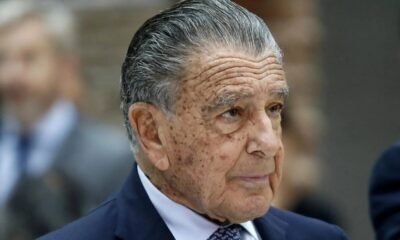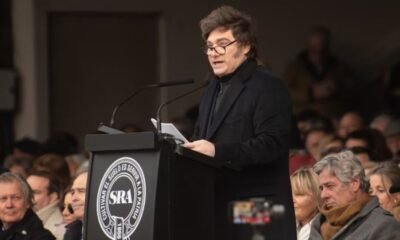INTERNACIONAL
Decision day approaches for Trump admin on controversial UN force that failed to disarm Hezbollah
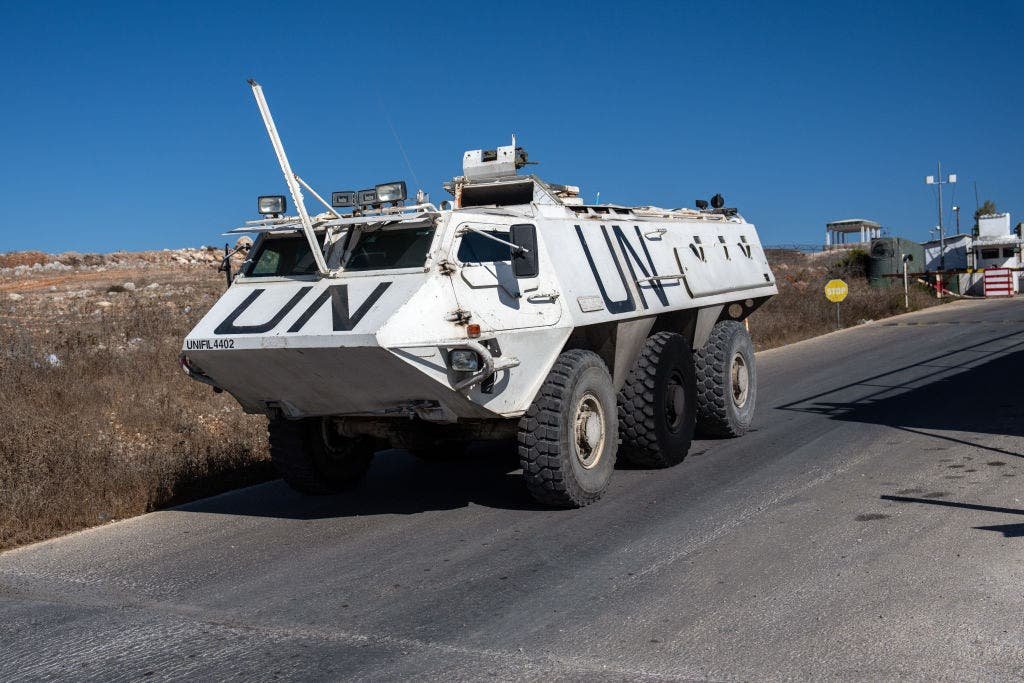
NEWYou can now listen to Fox News articles!
JERUSALEM—The scandal-plagued U.N. mission set up to stop Hezbollah rocket attacks on Israel will know in late August if the Trump administration plans to vote to discontinue its mandate at the U.N. Security Council.
In interviews with Fox News Digital, several leading American and Israeli experts on the mandate have called for the U.S. government to pull the plug on the mandate because the United Nations Interim Force in Lebanon (UNIFIL) is an example of the U.N.’s ineffectiveness in stopping the Iran-backed Lebanese terrorist movement.
«Among countless failures by the United Nations in the Middle East, UNIFIL may be the most spectacular. Tasked with ensuring that Hezbollah would not rearm after the 2006 war, it patiently watched as Hezbollah became the largest non-state terrorist and military organization in the world. Stability in Lebanon — within reach only now that Israel has decapitated Hezbollah’s leadership — will not be achieved through UNIFIL,» the former U.S. Ambassador during the first Trump administration, David Friedman, told Fox News Digital.
EXCLUSIVE: A LOOK AT HEZBOLLAH’S PLAN TO TERRORIZE AND INVADE NORTHERN ISRAEL
The Palestinian flag and the flag of Hezbollah wave in the wind on a pole as peacekeepers from the United Nations Interim Force in Lebanon (UNIFIL) patrol the border area between Lebanon and Israel on Hamames hill in the Khiyam area of southern Lebanon on October 13, 2023. (Photo by Joseph Eid/AFP via Getty Images) (Photo by Joseph Eid/AFP via Getty Images)
After the conclusion of the Second Lebanon War in 2006 between Israel and Hezbollah, the UNSC passed Resolution 1701, which outlined that the international force UNIFIL, along with the Lebanese Armed Forces (LAF), was supposed to block Hezbollah’s activity in southern Lebanon.
Hezbollah joined Hamas in its war on the Jewish state a day after the Iranian regime-backed terrorist organization in Gaza invaded Israel on October 7, 2023, and slaughtered over 1,200 people, including more than 40 Americans.
In October, Fox News Digital reported that UNIFIL soldiers had failed to stop Hezbollah’s massive rocket and military weapons expansion since the mandate was implemented in 2006.
Israel’s U.N. Ambassador Danny Danon at the time accused UNIFIL of failing to enforce its mission to prevent the U.S.-designated terrorist movement Hezbollah from establishing military outposts on the border with Israel.
Israel’s incursion into southern Lebanon has revealed a military outpost about a mere 300 yards north of the border with the Jewish state that is filled with explosives and mines, according to Israel Defense Forces (IDF).
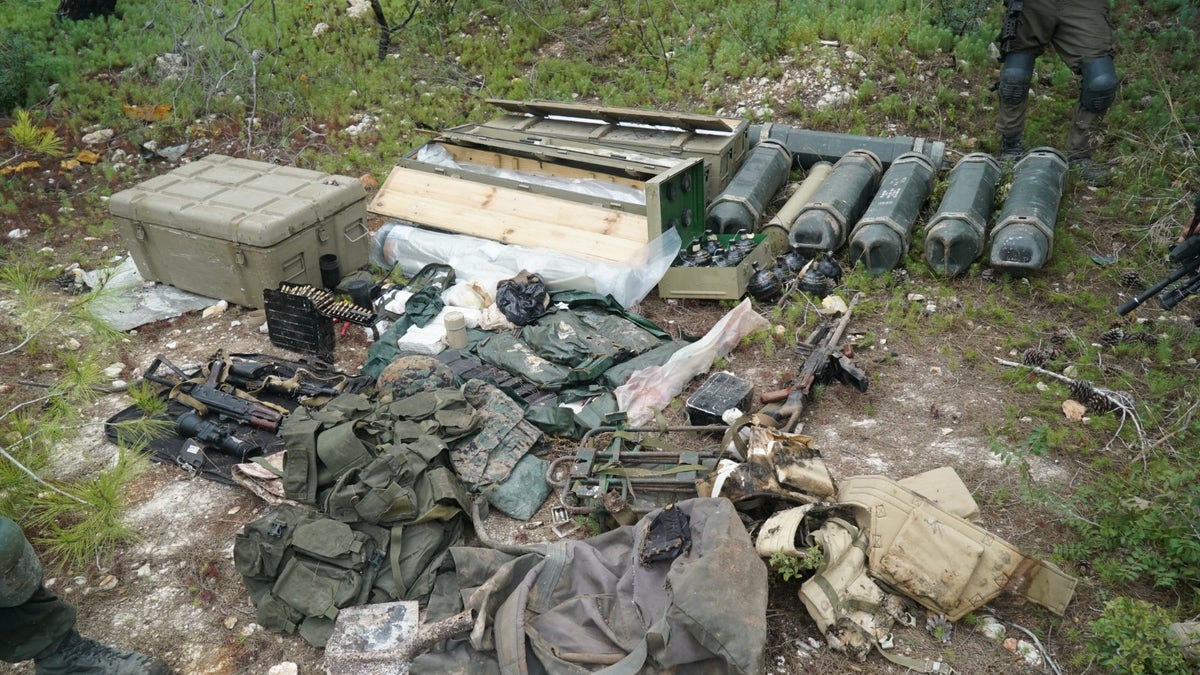
Hezbollah weapons cache located near a UNIFIL post by IDF troops in southern Lebanon. (IDF Spokesman’s Unit.)
ISRAEL ORDERS IDF TO SEIZE MORE GAZA TERRITORY IF HAMAS DOESN’T RELEASE HOSTAGESWhen asked if Israel seeks an end of the UNIFIl mandate, Jonathan Harounoff, international spokesperson for Israel’s Mission to the United Nations, told Fox News Digital this week that «Israel is still evaluating the situation.»
A U.S. State Department spokesperson told Fox News Digital that «We have nothing to announce at this time» about a vote against continuing the UNIFIL mandate.
Dr. Zoe Levornik and Sarit Zehavi, from the Israel Alma Research and Education Center—one of the top think tanks assessing UNIFIL and Hezbollah—wrote on the organization’s webpage on June 10: «Over the years, UNIFIL has had numerous opportunities to improve and fulfill its role, particularly in light of Israel’s repeated warnings. Yet no real attempt has been made to alter the organization’s conduct. There is no reason to believe that renewing the mandate—even with improvements—will bring about the necessary change that would make UNIFIL’s presence in southern Lebanon relevant and effective in maintaining the security of both Israel and Lebanon.»
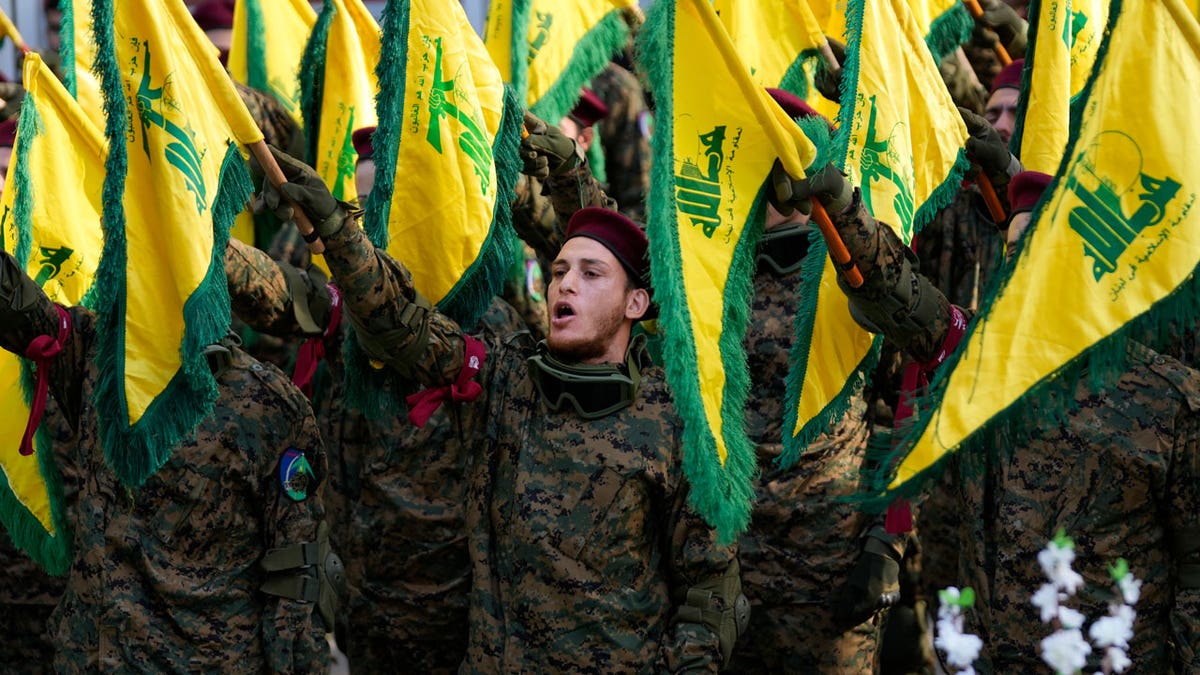
Hezbollah fighters attend the funeral of their commander Wissam al-Tawil, in the village of Khirbet Selm, south Lebanon, Tuesday, Jan. 9, 2024. A war of words that has unfolded in Lebanon show longstanding schisms in the small country over Hezbollah, now amplified by the militant group’s role in the Lebanon-Israel border clashes and by fears that an already crisis-hit Lebanon could be dragged into an all-out war. (AP Photo/Hussein Malla, File)
When confronted with the criticism from Alma about UNIFIL, the peacekeeping force’s spokesman, Andrea Teneti, told Fox News Digital «The LAF continues to benefit from UNIFIL’s support—not only to ensure full deployment in areas currently occupied by Israel, but also through training, capacity-building, and the development of essential capabilities needed to take over our mandated tasks on land and at sea.
«The mission’s relevance remains vital in maintaining an impartial international presence on the ground, helping to monitor the situation and reinforce the efforts of the LAF. Additionally, UNIFIL is providing essential support to local communities during this particularly challenging period, contributing to stability in the area despite the numerous shelling monitored and reported since 27 November 2024.»
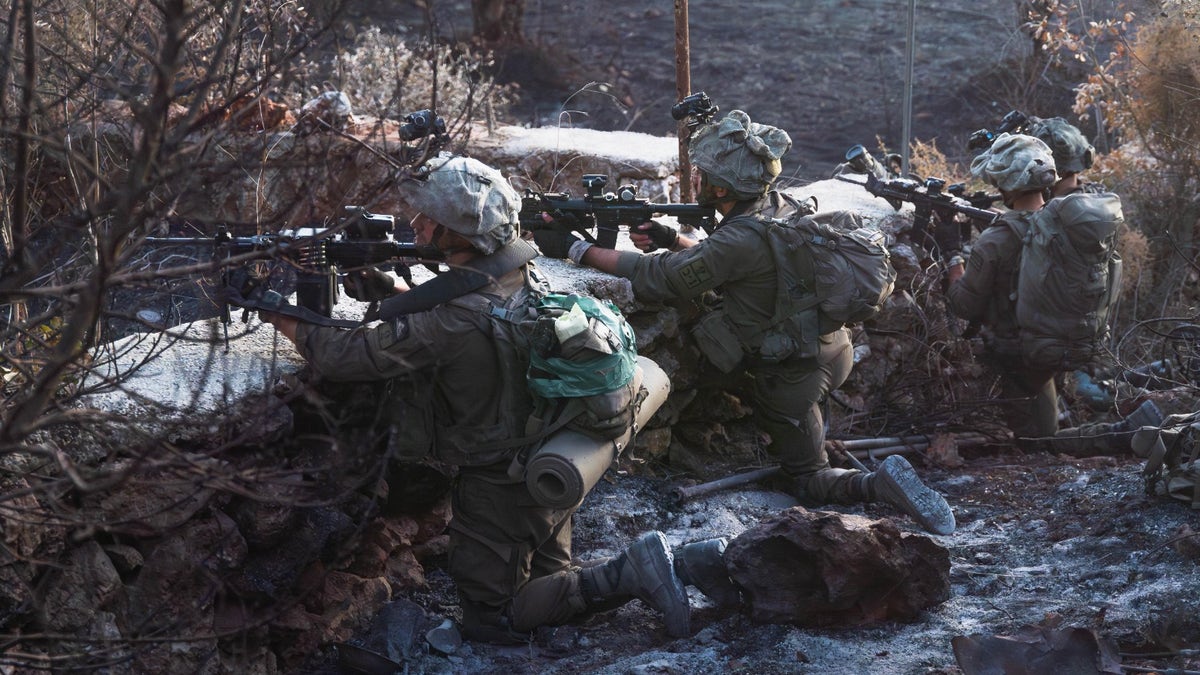
IDF troops fighting Hezbollah terrorists in southern Lebanon. (IDF Spokesman’s Unit.)
FREED ISRAELI HOSTAGE TELLS UN, ‘NO MORE EXCUSES,’ SAYS AID IS FEEDING TERRORISTS
He added «Implementation of 1701 is not with UNIFIL but with the parties. We are supporting the parties in the implementation of the mandate, but commitment is needed from both sides. In recent months, during this new political environment, LAF and UNIFIL have been recovering a large number of ammunition caches as well as positions used previously by Hezbollah. The situation is more stable than earlier, but air strikes are continuing and the stability is still fragile.»
Zehavi, who lives in northern Israel, where Hezbollah has caused severe destruction with missile fire, countered the UNIFIL spokesman’s comments. She told Fox News Digital that all the things mentioned by UNIFIL «are secondary to the primary issue of the mandate, which is the disarmament of Hezbollah.»
Zehavi added that despite the UNIFIL spokesman claiming that UNIFIL seized ammunition used by Hezbollah, she noted that UNIFIL has provided no evidence. She asked «in which towns» Hezbollah is being disarmed. She stressed, «Where are the pictures? How come there are no proofs and only statements that they are doing that? As a resident of the north, I want to see proofs to remind everybody that the IDF showed proofs of the arms of Hezbollah in south Lebanon and brought them into Israel.»
She also asked where has UNIFIL been over the last 18 years in training the Lebanese army?» I think the United States and France can do that better than UNIFIL,» mentioning the new mechanism set up to address violations via U.S. and French Generals who are in the region, she said.
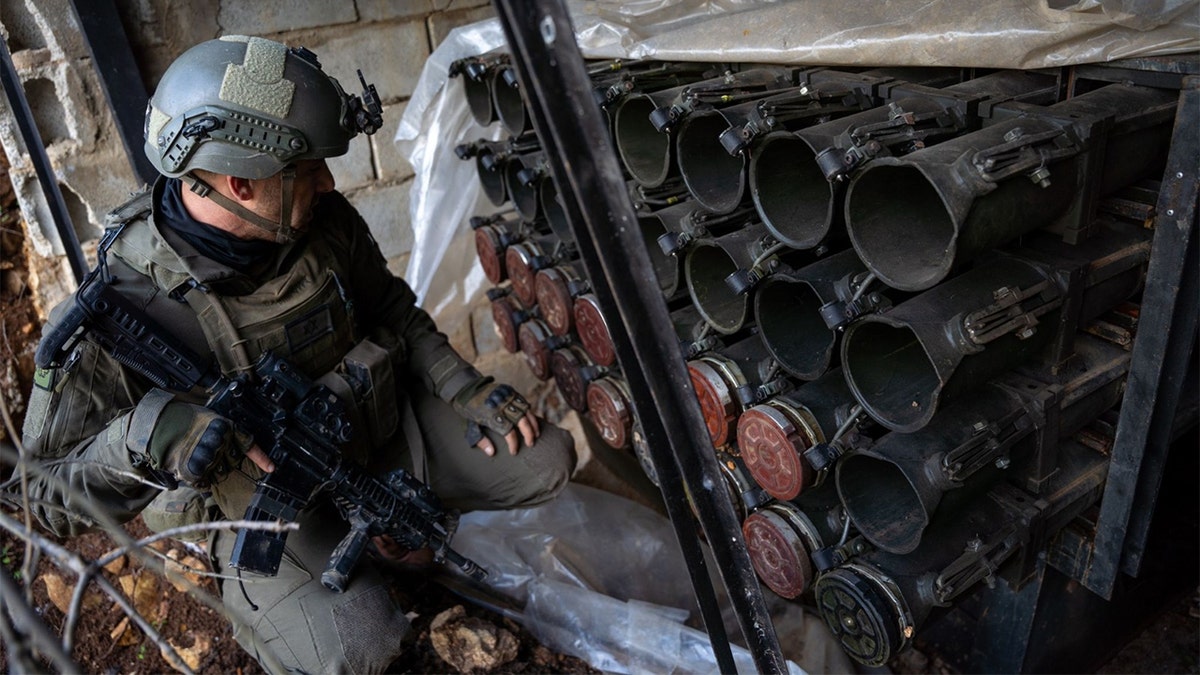
An IDF soldier is photographed near anti-tank missiles that belongs to the terror group Hezbollah in Southern Lebanon. (IDF)
Zehavi said UNIFIL over the years «tied our hands» during the Israel-Hezbollah war.
She added that Israel is enforcing the disarming of Hezbollah via continued military strikes in the south. The Biden administration and France brokered a fragile ceasefire in November between Hezbollah and Israel. The language of the ceasefire states it aims to «promote conditions for a permanent and comprehensive situation.» The ceasefire ended 14 months of high-intensity warfare between Israel and Hezbollah.
When asked about Zehavi’s questions, Teneti said «All our findings—whether related to activities conducted with or without the Lebanese Armed Forces—are shared with the members of the Security Council and also transmitted to the Mechanism, as agreed by both Lebanon and Israel. This is our authorized reporting line. Additionally, all detailed information is published quarterly in the Secretary-General’s report on the implementation of Resolution 1701, which is a public document.»
Pro-Hezbollah officials and soldiers within Lebanon’s Army also remain a core problem, according to experts and media reports. In late January, a LAF chief reportedly sent a classified document to Hezbollah. The LAF‘s Suhil Bahij Gharb, who oversees military intelligence for southern Lebanon, secured the confidential material from a military facility run by the U.S., France and the U.N. interim force in Lebanon (UNIFIL).
CLICK HERE TO GET THE FOX NEWS APP
The White House and the U.S. National Security Council did not immediately respond to Fox News Digital press queries.
INTERNACIONAL
Marco Rubio pidió un alto el fuego inmediato entre Tailandia y Camboya tras cuatro días de enfrentamientos fronterizos

El secretario de Estado de Estados Unidos, Marco Rubio, instó este domingo a los gobiernos de Tailandia y Camboya a reducir de inmediato las tensiones militares en su frontera y a acordar un alto el fuego efectivo, tras cuatro días de enfrentamientos armados que han causado más de 30 muertos y forzado el desplazamiento de más de 200.000 personas.
“El presidente Trump y yo reiteramos nuestro compromiso con la paz en la región. Es urgente que ambas partes detengan las hostilidades y se comprometan con un alto el fuego”, afirmó Rubio en un comunicado, tras mantener conversaciones con los ministros de Exteriores de Tailandia, Maris Sangiampongsa, y de Camboya, Prak Sokhonn.
La situación en la frontera común entre ambos países del sudeste asiático se deterioró rápidamente desde el jueves, cuando se reportaron los primeros intercambios de fuego entre tropas tailandesas y camboyanas. Aunque ya existía un acuerdo preliminar para iniciar conversaciones, las hostilidades se intensificaron durante el fin de semana, lo que llevó a un llamado de atención internacional.
Rubio informó que funcionarios del Departamento de Estado se encuentran ya en Malasia “para apoyar directamente los esfuerzos de paz”, en el marco de las negociaciones programadas para este lunes en Kuala Lumpur. El encuentro contará con la participación del primer ministro en funciones de Tailandia, Phumtham Wechayachai, y del primer ministro camboyano, Hun Manet.
“El objetivo de esta reunión es alcanzar un alto el fuego inmediato”, declaró Hun Manet antes de partir hacia Malasia, a través de sus redes sociales. Por su parte, Phumtham señaló que “todos desean ver la paz. Nadie quiere ver violencia que afecte la vida de los civiles”. El primer ministro interino tailandés subrayó que las conversaciones buscarán “garantizar la seguridad de todas las partes” y no incluirán por ahora temas de disputa territorial.
La reunión será mediada por el primer ministro de Malasia, Anwar Ibrahim, en representación del país que actualmente ocupa la presidencia rotativa de la Asociación de Naciones del Sudeste Asiático (ASEAN). Fuentes diplomáticas confirmaron que la delegación tailandesa está compuesta también por el ministro de Exteriores y el ministro interino de Defensa, Natthaphon Narkphanit. Del lado camboyano, la delegación estará liderada únicamente por Hun Manet.
La comunidad internacional ha comenzado a movilizarse en apoyo al proceso de negociación. El secretario general de la ONU, António Guterres, expresó su preocupación por la escalada de violencia y reiteró que la organización “está disponible para apoyar cualquier esfuerzo que conduzca a una solución pacífica de la disputa”.
China también emitió un pronunciamiento el domingo en el que se comprometió a “mantener una postura justa e imparcial” y a “facilitar activamente las conversaciones de paz”, manteniendo una “estrecha comunicación” con las autoridades de ambos países.

En paralelo, el presidente Donald Trump mantuvo el domingo conversaciones telefónicas con ambos jefes de gobierno. Según fuentes del Departamento de Estado, Trump condicionó futuros acuerdos comerciales con Bangkok y Nom Pen al cese inmediato de las hostilidades.
“Queremos que este conflicto termine lo antes posible”, reiteró Rubio. Subrayó que el gobierno estadounidense continuará trabajando con sus socios regionales para preservar la estabilidad en el sudeste asiático.
La disputa actual se enmarca en una serie de desacuerdos históricos no resueltos sobre delimitación territorial, exacerbados por tensiones militares y nacionalistas en ambos países. Aunque los detalles sobre el origen del enfrentamiento reciente no han sido oficialmente divulgados, analistas regionales apuntan a incidentes de patrullaje y cruce de fronteras en zonas rurales poco delimitadas.
Organizaciones humanitarias alertaron que los desplazamientos masivos están generando una emergencia humanitaria en zonas rurales fronterizas, con escaso acceso a servicios básicos.
Las negociaciones en Kuala Lumpur están previstas para comenzar a las 15:00 hora local (7:00 GMT), bajo estrictas medidas de seguridad y con la presencia de observadores regionales.
(Con información de EFE y AFP)
North America,Washington
INTERNACIONAL
Polonia desplegó aviones de combate para proteger su espacio aéreo tras una nueva ofensiva rusa contra Ucrania
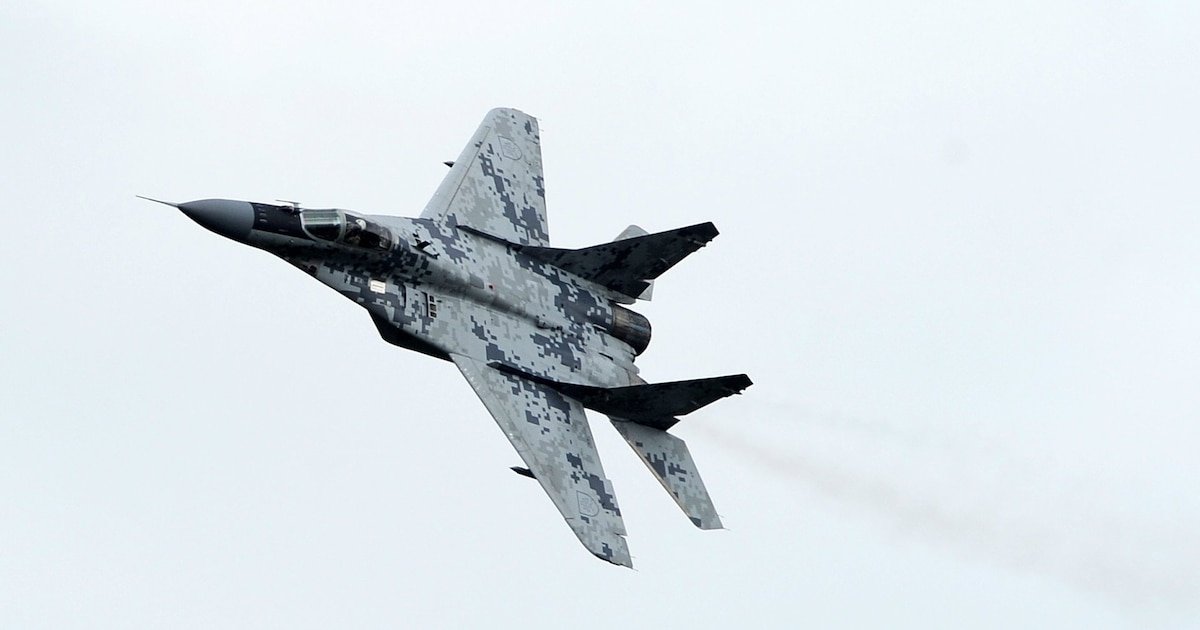
Polonia activó durante la madrugada de este lunes a sus fuerzas aéreas nacionales y aliadas ante una nueva ola de ataques rusos con misiles y drones contra Ucrania. Así lo informó el Comando Operativo de las Fuerzas Armadas polacas, que explicó que los vuelos de combate tuvieron carácter preventivo y se realizaron para garantizar la seguridad del espacio aéreo nacional, especialmente en zonas cercanas a la frontera oriental.
“El largo alcance de la aviación de la Federación Rusa volvió a poner en marcha ataques con misiles contra territorio ucraniano”, señaló el comunicado.
“Estas acciones tienen un carácter preventivo y están orientadas a asegurar el espacio aéreo y proteger a la población, en especial en las regiones cercanas a la zona amenazada”, agregó el alto mando militar polaco.
Los incidentes ocurrieron mientras la mayor parte del territorio ucraniano permanecía bajo alerta aérea por ataques rusos durante la noche del domingo al lunes, según informaron las Fuerzas Aéreas de Ucrania y confirmó la agencia Reuters. La operación militar rusa incluyó el lanzamiento masivo de drones y misiles de crucero contra infraestructuras civiles en distintas ciudades ucranianas.

En Kiev, ocho personas resultaron heridas la noche del domingo tras un ataque con drones rusos, de acuerdo con el portal Ukrainska Pravda, que citó a las autoridades locales. Una de las víctimas se encuentra en estado grave. Según reportes oficiales, los daños materiales se concentraron en edificios residenciales del centro de la capital.
En otro ataque ocurrido ese mismo día en la región nororiental de Sumy, un dron ruso impactó contra un autobús civil, provocando la muerte de tres mujeres —de entre 66 y 78 años— y dejando a varios heridos. “El enemigo atacó un autobús con civiles mediante un dron”, indicó la fiscalía regional en Telegram, donde difundió imágenes del vehículo destruido. Las víctimas mortales fueron confirmadas por las autoridades locales, que denunciaron el uso sistemático de armamento contra blancos no militares.
Durante las últimas semanas, Rusia ha incrementado el uso de drones y misiles en ataques dirigidos a ciudades ucranianas, provocando numerosas víctimas civiles. El gobierno de Ucrania sostiene que estas ofensivas buscan generar terror y desgaste en la población, al tiempo que debilitan la infraestructura crítica del país.

En respuesta, Kiev ha intensificado también sus propias operaciones ofensivas en territorio ruso. En la región de Leningrado, al noroeste de Rusia, el gobernador Aleksandr Drozdenko informó que un hombre murió y otras tres personas resultaron heridas tras un incendio causado por la caída de restos de un dron. El incidente fue atribuido a una operación ucraniana con vehículos aéreos no tripulados.
El conflicto sigue sin avances significativos en el plano diplomático. El presidente de Ucrania, Volodimir Zelensky, ha reiterado su disposición a reunirse con su homólogo ruso, Vladímir Putin, para buscar una solución al conflicto antes de que finalice agosto. Sin embargo, el Kremlin descartó recientemente que una cumbre de ese tipo esté próxima a concretarse.
“Rusia solo ha enviado a funcionarios de bajo nivel sin capacidad de decisión”, ha reclamado Kiev tras varias rondas de contactos internacionales. Según Ucrania, Moscú mantiene posiciones inaceptables en la mesa de negociación, como la exigencia de que Kiev renuncie a cuatro regiones ucranianas que Rusia afirma haber anexado en 2022. Para Zelensky, ceder esos territorios no es negociable bajo ninguna condición.

Mientras tanto, Ucrania ha intensificado sus llamados a los países occidentales para acelerar el envío de armamento y sistemas de defensa. El gobierno ucraniano insiste en que su capacidad de resistencia ante los ataques diarios depende del suministro sostenido de recursos militares por parte de sus aliados en Europa y América del Norte.
(Con información de AFP)
Politics,Europe
INTERNACIONAL
Estados Unidos y la Unión Europea lograron un acuerdo comercial que prevé aranceles de 15% para las exportaciones europeas
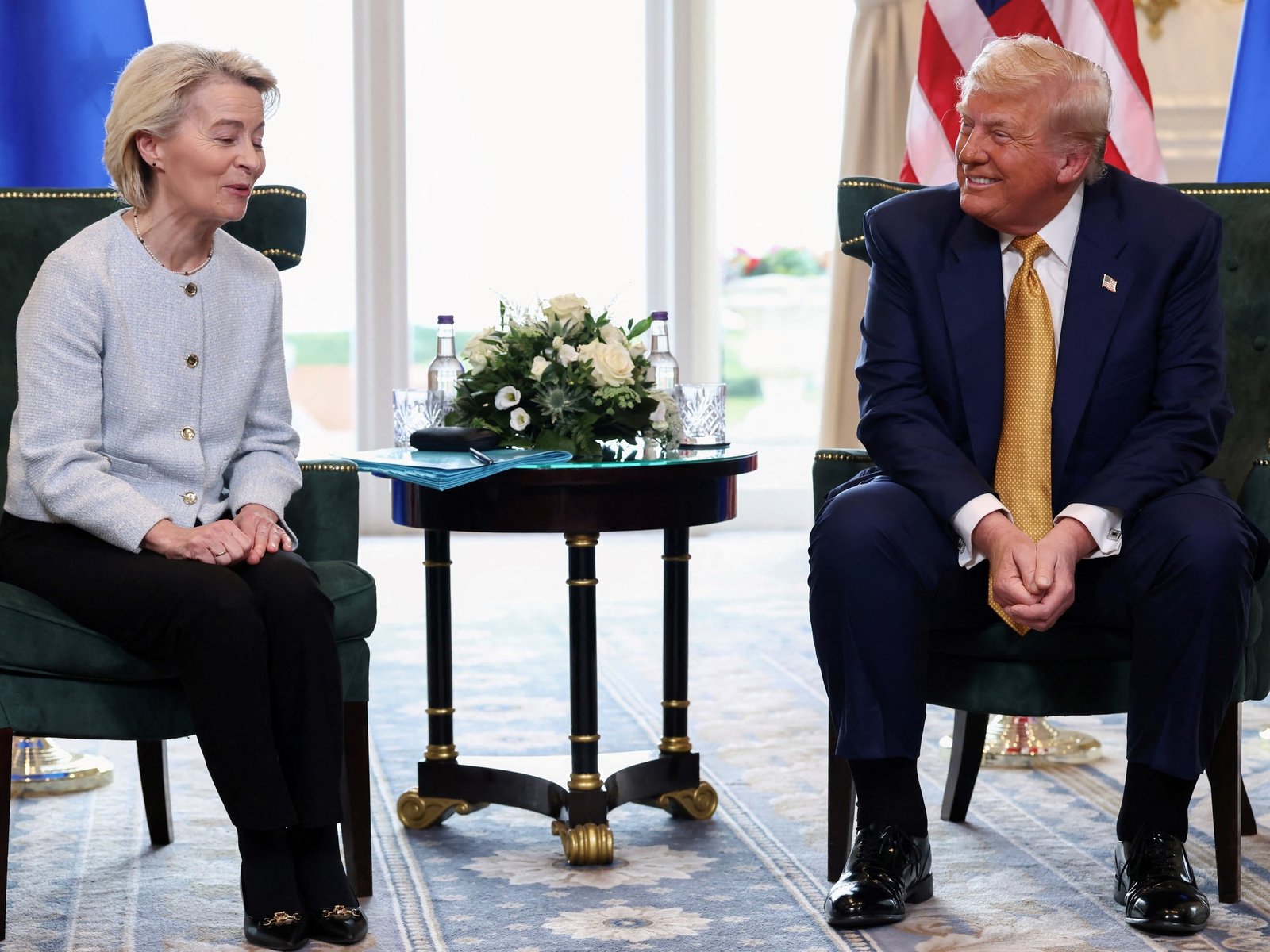
La negociación
Estados Unidos,Unión Europea,Donald Trump

 POLITICA3 días ago
POLITICA3 días agoCristina Kirchner pidió salir a militar para que los que “están hambreando a la gente tengan su merecido en las urnas”

 POLITICA2 días ago
POLITICA2 días agoJavier Milei anunció en La Rural una baja histórica de retenciones y prometió que será “permanente”

 CHIMENTOS1 día ago
CHIMENTOS1 día agoSusana Giménez escapó del país y comienza a rodar un nuevo proyecto














